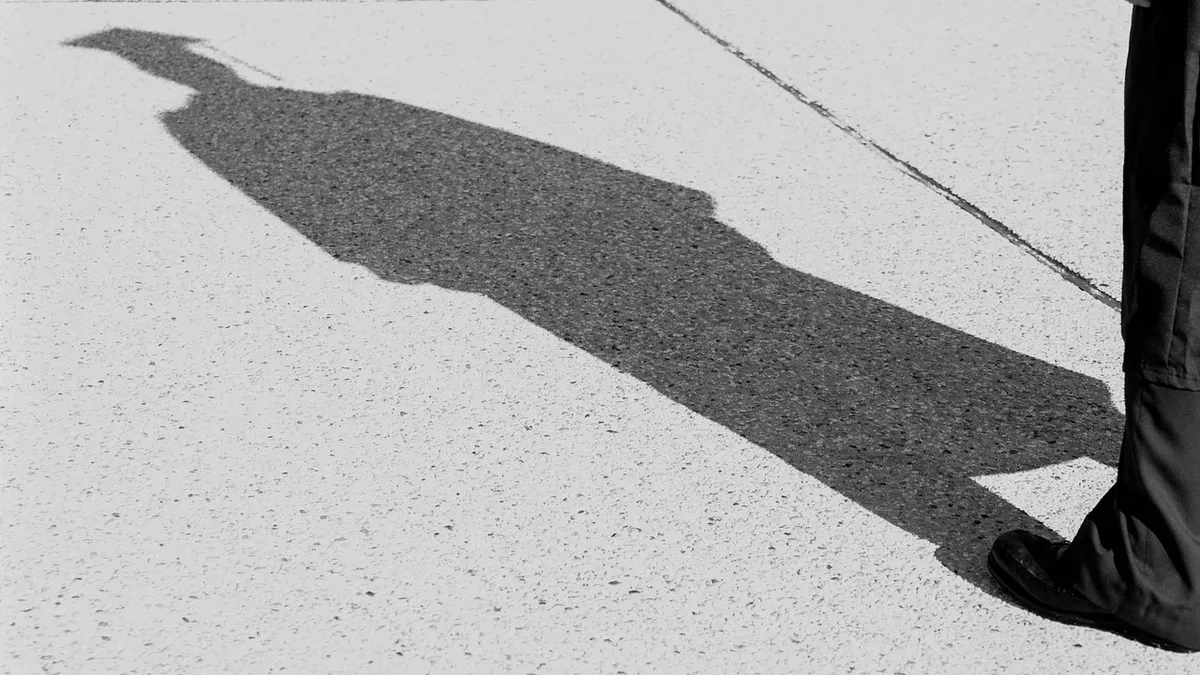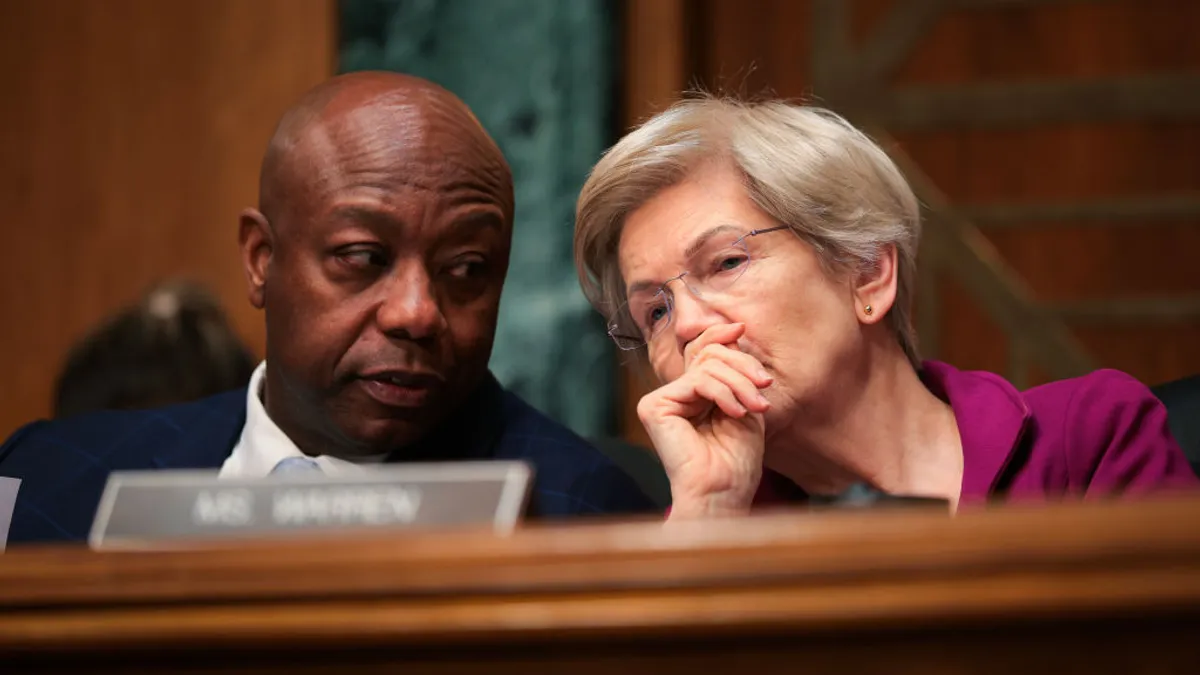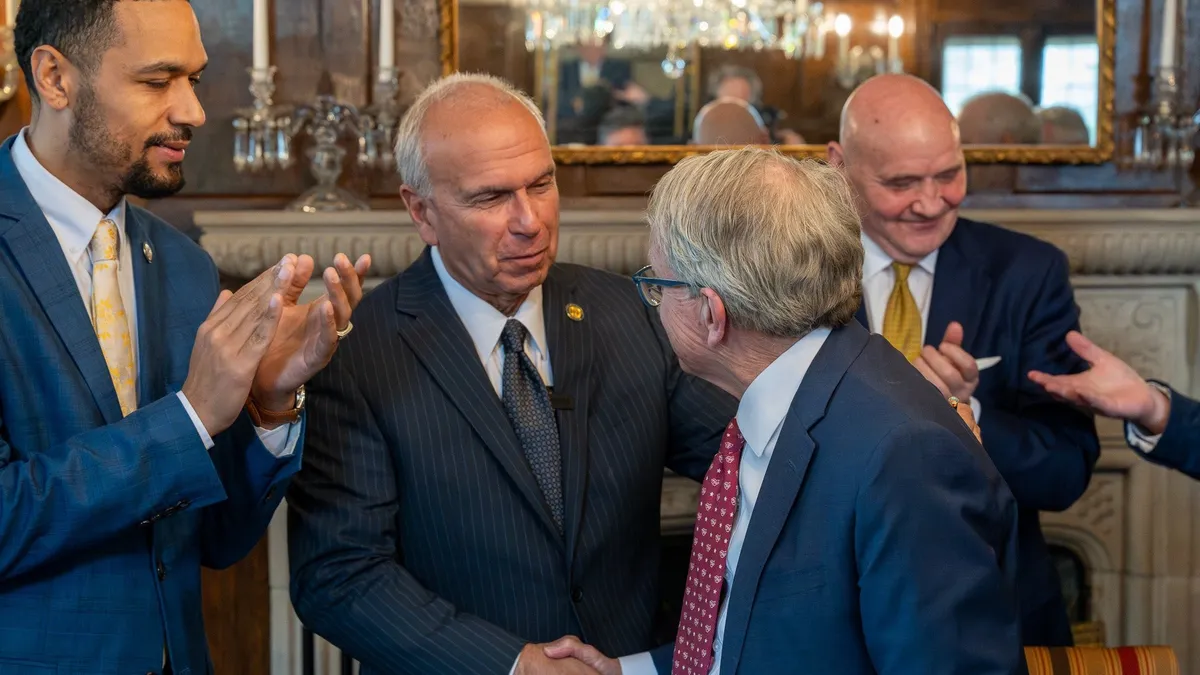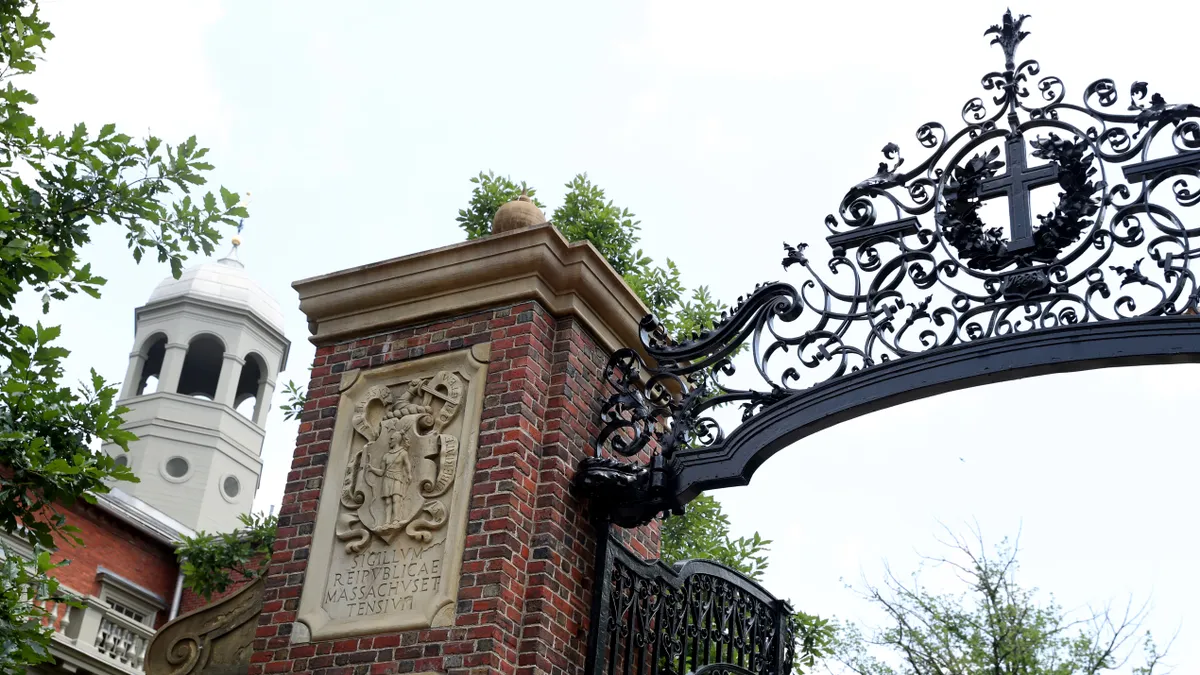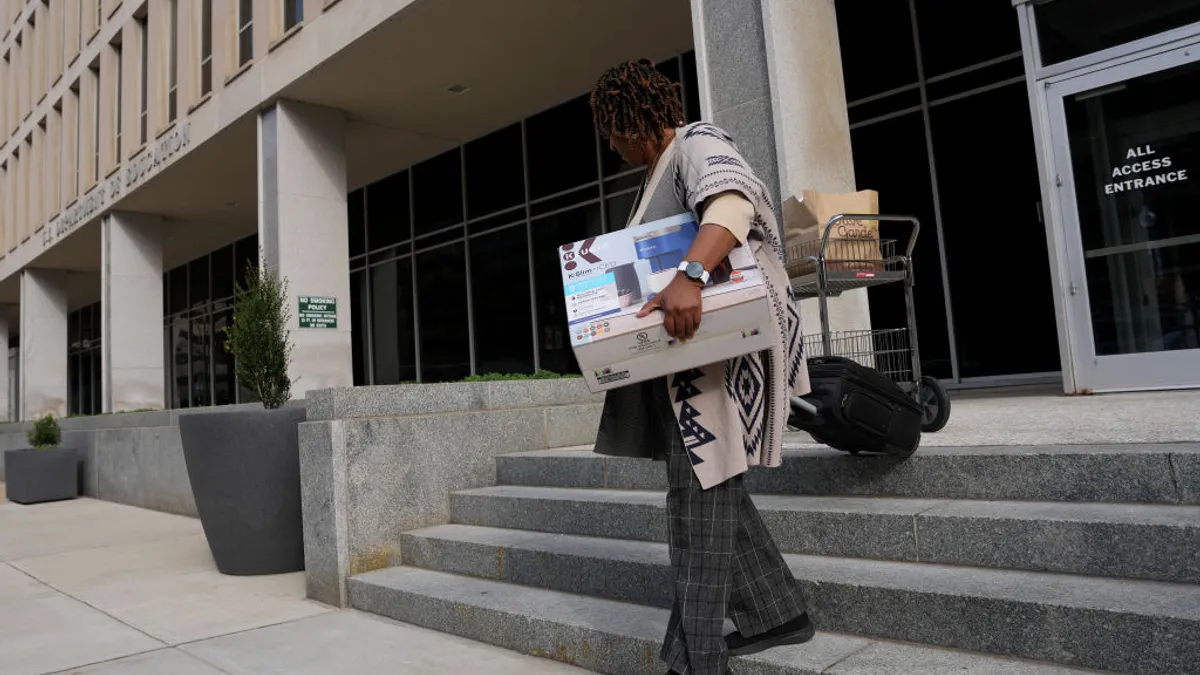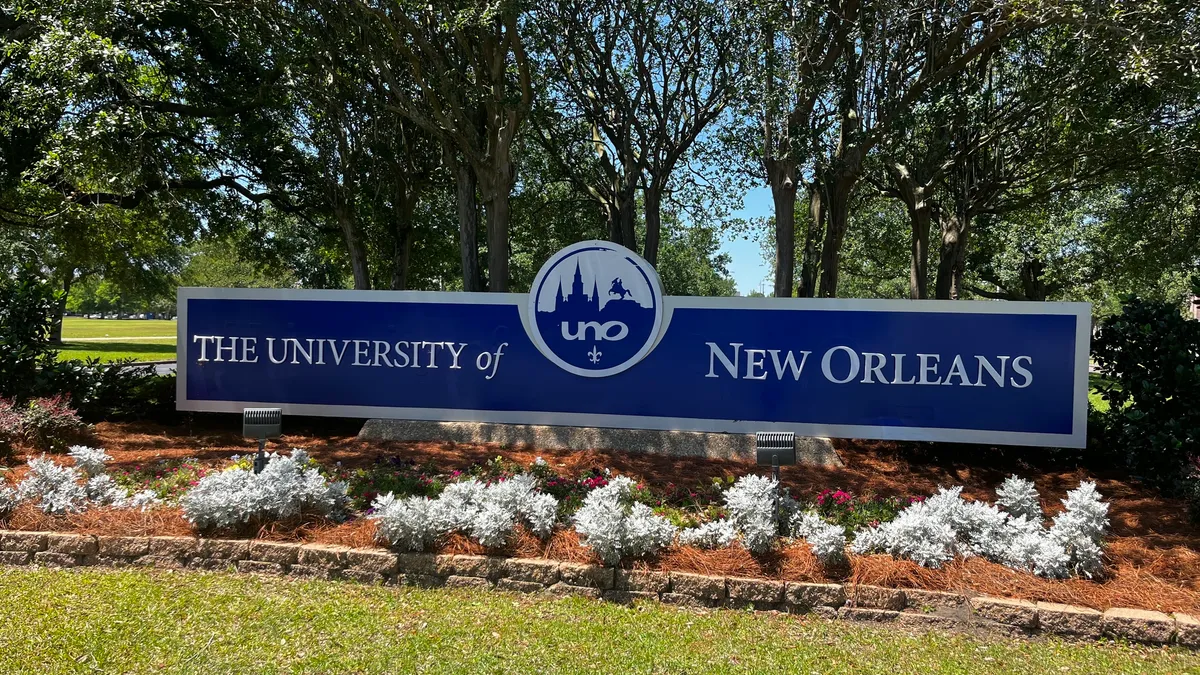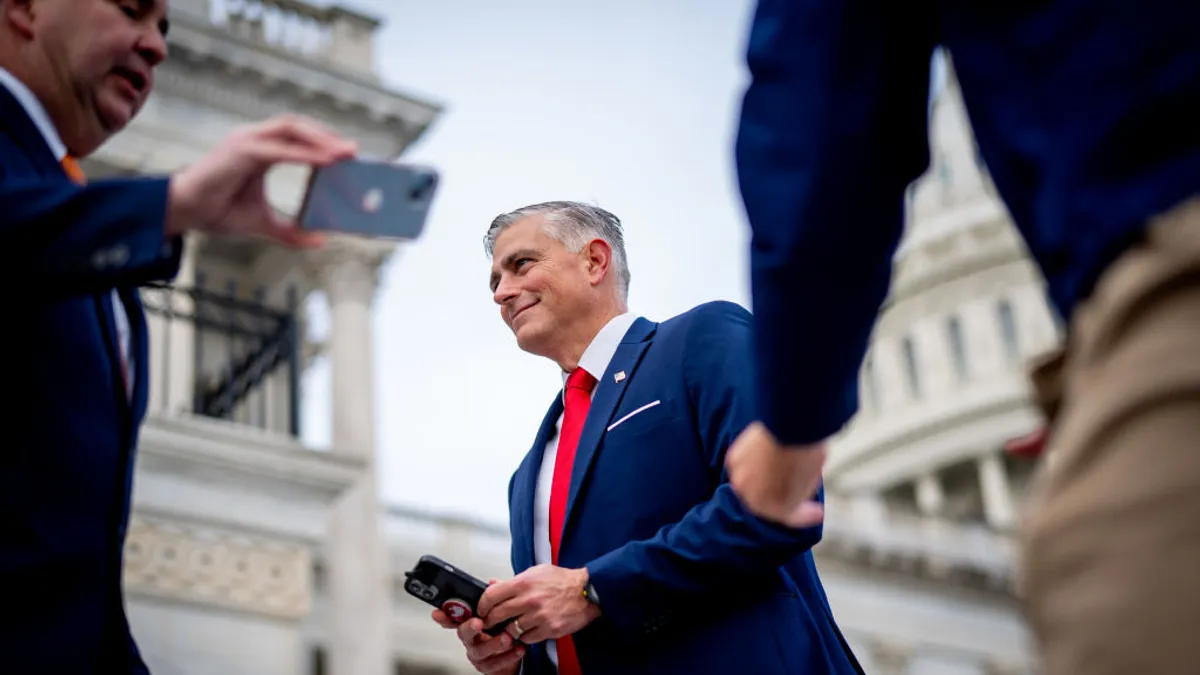Two months ago, Mauricio was a typical first-generation college student, juggling classes at a local community college with a job that helped with tuition and his family's bills. His wasn't a carefree life — money was tight, and he was worried he might soon lose his ability to work legally in the U.S. — but he was making it.
Then the coronavirus struck, and the dominos began to fall. The child care center he worked at closed. Soon after, both his parents lost their jobs.
Now, Mauricio, 19, whose family immigrated illegally to the U.S. from El Salvador when he was 1 year old, is balancing online classes with daily trips to the local food bank.
"It's very straining, very stressful to juggle school while being unsure whether we'll be able to provide for the day," he said.
The coronavirus pandemic has created financial and educational challenges for many college students in the U.S., thousands of whom are out of work and studying from home.
But it's been particularly devastating for unauthorized students and their families, who were living precarious lives even before the virus struck. Many work in hard-hit sectors like child care, food service and retail, and they've been excluded from the new federal relief programs, including emergency grants for college students.
In a recent survey of more than 1,600 unauthorized students conducted by The Dream.US, more than half of students who had a job reported losing it, and 80% reported a loss in income. Two-thirds of respondents said they needed help paying for rent and utilities and half said they needed help with food and meals.
The crisis is compounding the uncertainty that many unauthorized students feel about their futures as they await a Supreme Court decision on the fate of the Deferred Action for Childhood Arrivals (DACA) program, an Obama-era policy that lets young people like Mauricio, who came to the U.S. illegally as children, remain here to study and work, and that the Trump administration wants to end.
The stakes in the court's decision are high. There are almost a quarter million DACA-eligible students enrolled in U.S. colleges, working toward degrees that could improve their economic mobility. If the Supreme Court upholds the president's 2017 decision to terminate the program, those students will lose their ability to work legally and could face deportation. Many will no longer be able to afford college; others will decide it's not worth the investment.
Without targeted support from their colleges — financial, legal and emotional — "they will easily fall through the cracks," said Daniel Morales, an associate professor at the University of Houston Law Center.
How can colleges help their unauthorized students weather the current crisis and prepare them in the event the Supreme Court strikes down DACA? Advocates and students suggest four strategies:
Fill the financial gap
Because unauthorized students don't qualify for federal student aid — and in many cases, in-state tuition and state aid — they've long relied on colleges to help fill the gap. Now, with the U.S. Secretary of Education declaring them ineligible for federal emergency grants, too, colleges will need to step up again, said Juliana Macedo do Nascimento, state and local policy manager for United We Dream, an immigrant advocacy group.
That could be tough at a time when colleges are cutting programs and furloughing staff, but several institutions are committing to make up the absent federal aid for unauthorized students. Among them is Colorado Mountain College. "We're not open-access if our DACA students don't have access," said Carrie Besnette Hauser, the college’s president.
The University of California System has stopped interest accrual and late fees on loans it makes to qualifying unauthorized students and will pause collection upon request, a spokesperson said. And UC Merced has set aside funds to help DACA recipients if they lose work authorization.
Faculty and administrators could show their support by donating a portion of their own stimulus checks to relief funds for unauthorized young people, suggested Nancy Jodaitis, director of higher education initiatives for advocacy group Immigrants Rising.
Students can step up, too. At MiraCosta College, in California, the student government has donated $5,000 to the public college's program for unauthorized students, a spokesperson said.
Ask students what they need
For practical and security reasons, most colleges don't keep lists of their unauthorized students. But they may be able to target their outreach by focusing on students who didn't file a Free Application for Federal Student Aid, or on those who are listed as international but have U.S. addresses. That's how unauthorized students are classified on many campuses, said Macedo do Nascimento.
But tread carefully. Some unauthorized students are feeling so anxious that they're scared to even apply for the free internet access they need to complete assignments online, said Miriam Feldblum, executive director of the President's Alliance on Higher Education and Immigration.
When reaching out to students, colleges "need to take a trauma-informed approach," said Carrie Welton, who until recently was the senior policy director for Believe in Students. "You have to be clear that, regardless of their citizenship status, their institution is there for them, and will protect their privacy," she said.
At Delaware State University, one of 70 colleges that offer scholarships to unauthorized students through TheDream.US, president Tony Allen recently held a videoconference with unauthorized students to survey their needs. "You can't be the land of opportunity and deny opportunity to folks who have been here since they were little kids," he said.
Mind their mental health
More than half of unauthorized students in TheDream.Us survey said they needed mental health support to cope with the current situation.
"Our scholars are very resilient — we choose them based on that — but they are going to need more support, given the crisis," said Tania Wilcox, director of college and scholar programs for the nonprofit.
That means making sure there are enough counselors to meet rising demand — something many colleges have struggled with for years. It also means ensuring that counselors are "culturally competent." That is, that they understand the unique challenges unauthorized students face, "so they don't need to explain their entire lives before they can be helped," said Macedo do Nascimento.
For students with less-acute anxiety, a simple message of support can go a long way, said Tania, 21, a nursing student at Delaware State University who immigrated to the U.S. from Mexico when she was six.
"Just reassuring us and reminding us that we are welcome in your school and that no matter what, we'll be allowed to stay, can help," she said.
Morales, the University of Houston law professor, starts each online class with what he calls "five minutes of therapy." It's an opportunity for all students to share their struggles and fears.
"At a time when DACA students feel increasingly isolated, a message from faculty and leaders that we see you, and you are one of us, can be positive," he said.
Be proactive
With the Supreme Court decision on the future of the DACA program due out any day, colleges need to be ready to respond.
At Metropolitan State University of Denver, administrators are planning a virtual town hall with counseling center staff and immigration attorneys, to be held shortly after the ruling comes out. At UC Merced, a "healing circle," which would bring students and a facilitator together to discuss the ruling, is in the works.
Meanwhile, colleges in California are creating entrepreneurship classes and reminding career counselors to suggest self-employment as an option, said María Blanco, executive director at the UC Immigrant Legal Services Center. If the Supreme Court takes away DACA recipients' right to work, those moves could help them find self-employment.
UC Merced will let students complete their degrees online if, in a worst-case scenario, they are deported, said Charles Nies, the university's vice chancellor for student affairs.
Mauricio, the community college student from El Salvador, said he isn't aware of any special programs for DACA recipients at his college. He's just grateful that unauthorized students — who have been shut out of many government aid programs — aren't being left out of colleges' relief efforts.
"It goes a long way when they don't exclude us," he said. "In times like this, we need to stand together."
Editor's Note: We omitted the last names of the students in this story out of caution because of their immigration status.


